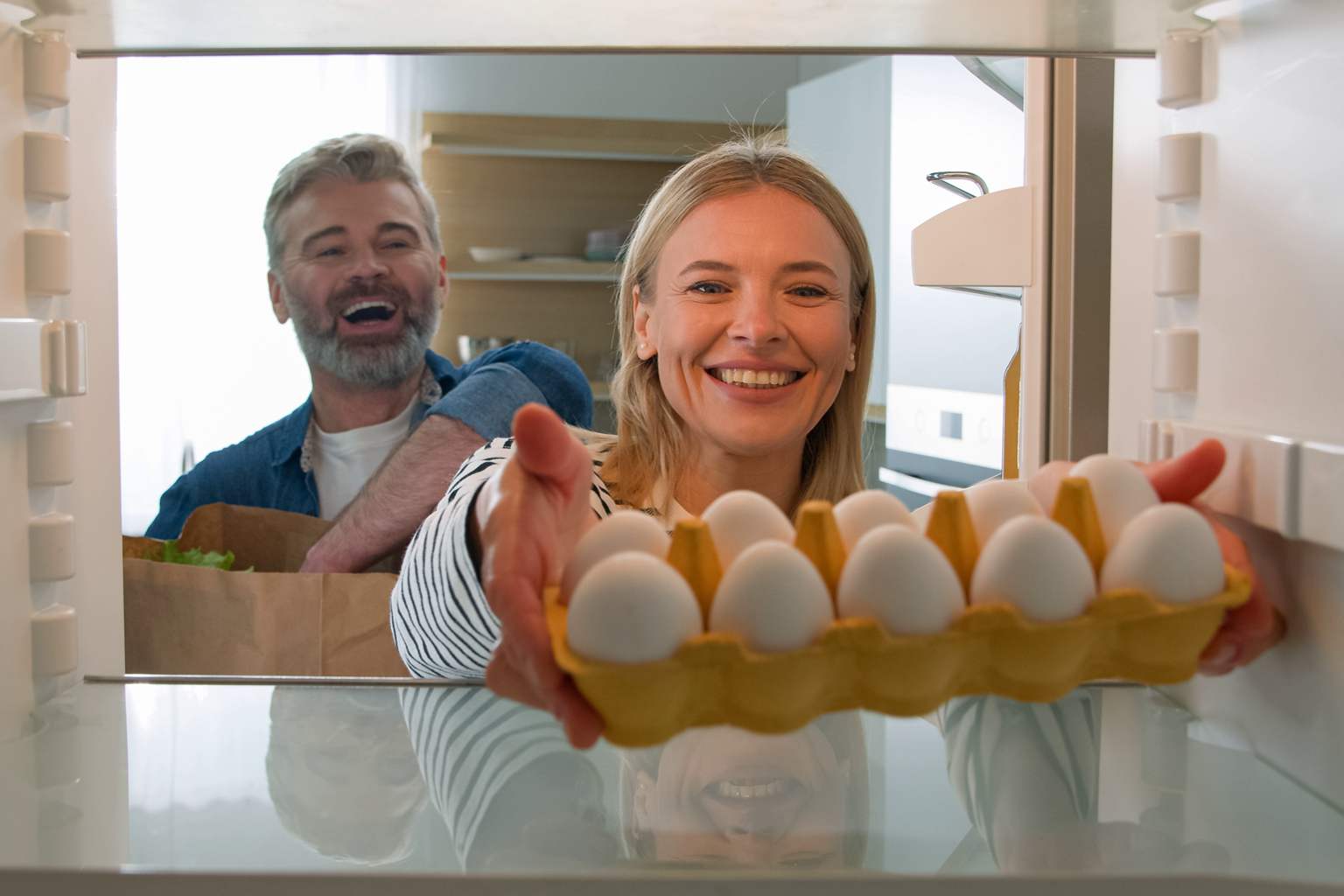How long can you really keep eggs in the refrigerator? Experts reveal the truth. You’ve probably wondered just how long eggs stay fresh once tucked away in your fridge. Is it really only a few days, or can they last much longer? Let’s crack open the facts and clear up the confusion.
The basics of egg storage
The lifespan of eggs varies depending on several factors — how you store them, your fridge’s temperature, and even the day they were packed. Experts agree, though, that eggs can be safely eaten up to three to five weeks after purchase if you handle them properly.
One key is to keep the eggs at a consistent, cold temperature to slow bacterial growth. When stored under the right conditions, eggs don’t spoil as quickly as many think.
One mother’s egg-saving discovery
Take Jessica, a mother of three from Bordeaux. She shares a story that might ring a bell for many of us: “A few months ago, I started storing my eggs in the fridge door after reading an online article. I didn’t realize that was actually cutting their freshness span dramatically.”
According to Jessica, adjusting her routine made a big difference. “Once I switched to keeping them on the center shelves — where the temperature doesn’t fluctuate — my eggs stayed good much longer.”
Her experience highlights a surprisingly common mistake and shows how a simple change can improve the shelf life of your eggs.
How to store eggs correctly
The main secret to prolonging your eggs’ freshness is maintaining a stable temperature. The fridge door often experiences temperature swings because it opens frequently. This ups and downs of coldness can make eggs spoil quicker.
For best results, store eggs inside the fridge on central shelves where the air is cold and steady. This keeps your eggs fresher for the longest time possible.
Signs to check if eggs are fresh
Worried about your eggs’ freshness? There’s a simple and fun test you can try at home — the water test. Just fill a bowl with water and drop an egg in. If it sinks and lies flat on its side, it’s fresh. If it stands upright or floats, the egg is older and should be looked at more carefully.
Jessica says, “I was skeptical about the water test at first, but after trying it, I now make it part of my weekly routine. It’s a quick way to make sure the eggs I plan to use are still good.”
When to toss eggs
If an egg floats in the water test, it’s best not to eat it. Another clear warning sign is smell. Even a faintly off odor means the egg should be discarded immediately—don’t risk food poisoning.
Trust your senses here. If the egg shell is cracked or slimy, or if the egg smells bad, it’s safer to throw it away.
Extra tips for enjoying eggs at their best
How you use your eggs matters just as much as how you store them. For baking and other recipes requiring whipped eggs, it’s helpful to bring them to room temperature first. Jessica advises, “Take eggs out of the fridge a few hours before use, especially when beating them. It really improves texture and flavor.”
This warming step can elevate your cooking game and help you bake or cook with eggs that react better in your dishes.
Understanding different egg labels
If you want to get more out of your eggs, knowing the labels can guide your choices. Terms like “Organic,” “Free range,” and “Cage-free” indicate different farming practices that affect taste, quality, and price.
Choosing the right eggs based on your values and preferences also impacts your cooking and eating experience. Whether you prioritize animal welfare or simply want richer flavors, picking eggs thoughtfully can make a difference.
When it comes to eggs, proper storage and handling are game changers. From the right shelf in your fridge to knowing the water test, these tips can help you save money and enjoy fresher eggs longer.
Have you tried any egg storage tricks or tests that surprised you? Share your thoughts or stories below—let’s hatch some great egg tips together!
